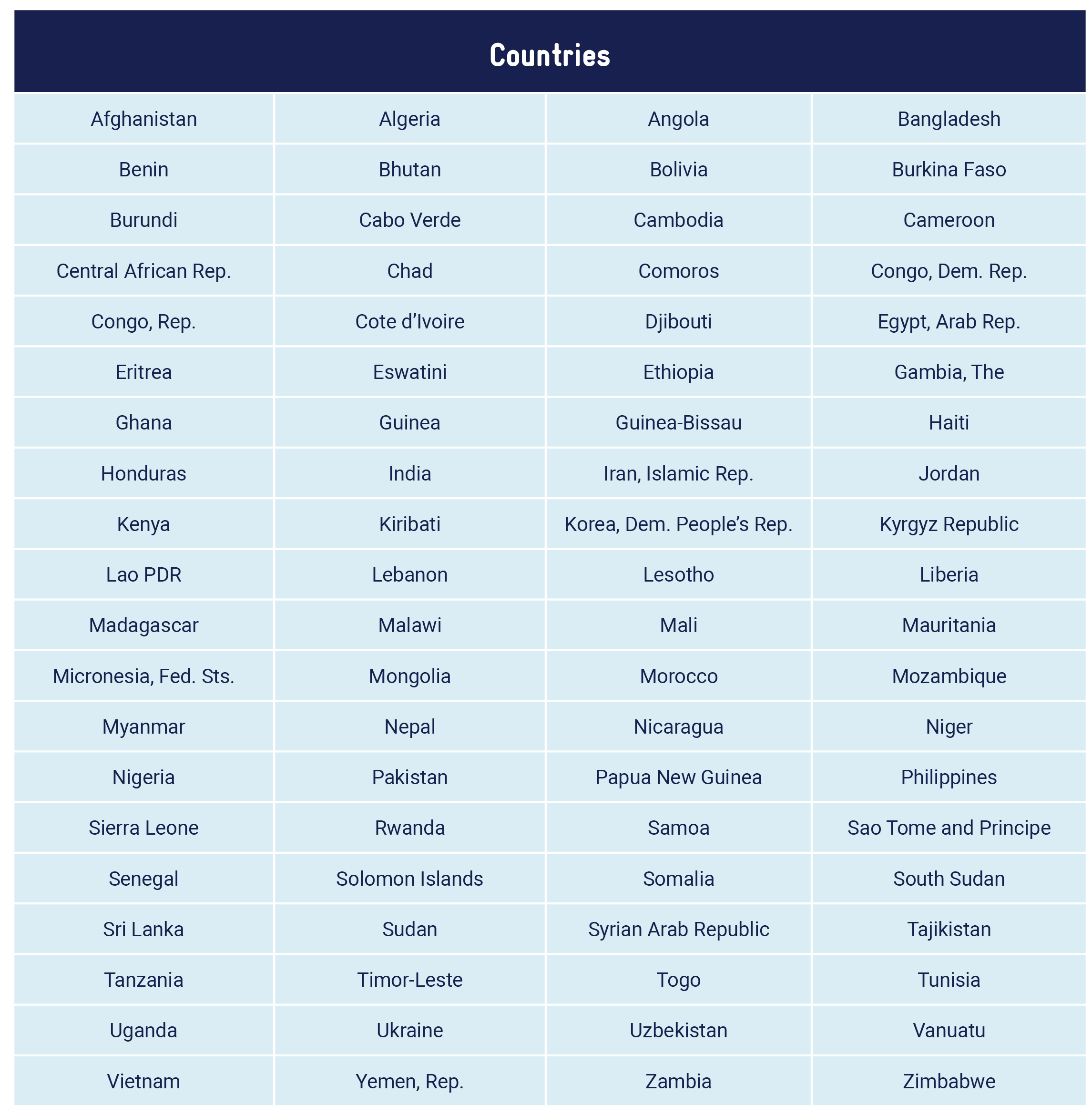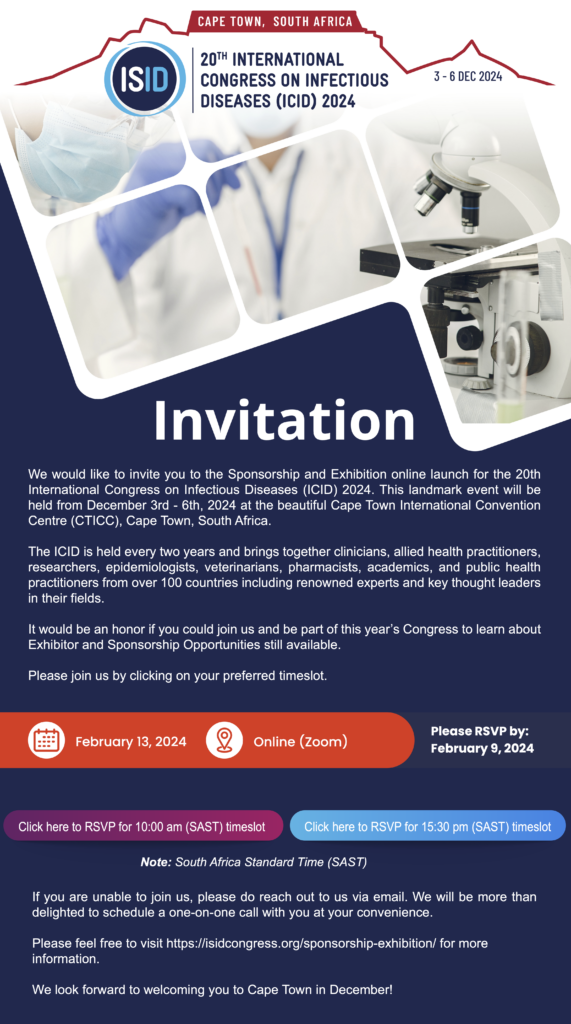Press Release: The International Society for Infectious Diseases will work with Amazon’s cloud computing arm to modernize its global infectious disease surveillance platform, the Program for Monitoring Emerging Diseases, better known worldwide as “ProMED,” which will improve its ability to find and alert the world to public health threats.
Brookline, Massachusetts (November 29th, 2022) — The International Society for Infectious Diseases (ISID) today announced it has been selected as a winner of the 2022 Amazon Web Services (AWS) IMAGINE Grant, a public grant opportunity open to registered 501(c) nonprofit organizations in the United States who are using technology to solve the world’s most pressing challenges. The grant will support ISID’s efforts to incorporate Artificial Intelligence (AI), Machine Learning (ML), and Natural Language Processing (NLP) into the workflow of its flagship program, ProMED.
Now in its fifth year, the AWS IMAGINE Grant program provides vital resources to nonprofit organizations looking to deploy cloud technology as a central tool to achieve mission goals. As part of the program, AWS seeks proposals for big ideas on how to leverage technology in new and innovative ways to accelerate impact in local and global communities.
ProMED has been delivering infectious disease alerts to email subscribers’ inboxes on a daily basis for 28 years. In 1994 a group of infectious disease doctors came together and wondered if they could harness the power of the internet to create a global network of subject matter experts (SMEs). ProMED was born out of that initial discussion and became one of the earliest global surveillance systems using informal information sources to find and alert the world to pandemic threats. ProMED has an impressive history of being the first to alert the world to many of the 21st century’s most well known outbreaks, including Severe Acute Respiratory Syndrome (SARS) in 2003, Chikungunya in 2005, Middle East Respiratory Syndrome (MERS) in 2012, and COVID-19 in 2019.
ProMED consists of 40 SMEs who sit in 28 different countries. The SMEs not only look for emerging outbreaks, but provide review and commentary on every post. This human-curation of media, news reports, and informal sources of information is unique to ProMED and is why ProMED’s posts are daily required reading for clinicians, public health officials, and policy makers, as well as for government and industry concerns including travel, tourism, petroleum, defense, agriculture, and pharmaceuticals. In the fall of 2021, ISID undertook the first step of the vision for ProMED’s next 28 years: migrating all of ProMED’s data and infrastructure over to its own AWS environment.
Now that everything resides on AWS, ProMED can incorporate AWS services like AI and ML to decrease the amount of time SMEs spend manually searching for potentially relevant outbreak information. As inbound data are often full text extractions, the NLP will be trained to extract key features, allowing the SMEs to focus on the quality of the report and simply confirm the NLP results. The combination of these technologies will significantly reduce the amount of time from signal detection to publication of information across the ProMED platform – a critical factor to containing threats and reducing harm.
ISID was named a winner in the Go Further, Faster category which recognizes highly innovative projects using advanced cloud services. ISID will receive $50,000 in unrestricted funding and $10,000 in AWS Computing Credits, and engagement with AWS technical specialists. Proposals were judged on several factors including the innovative and unique nature of the project, impact on mission-critical goals, and clearly defined outcomes and milestones.
“ISID is excited to be the recipient of the AWS IMAGINE grant as this not only recognizes ProMED’s leadership in this space, but jumpstarts our three year strategic plan for the next phase of development for ProMED,” said Linda MacKinnon, CEO of ISID. “We are grateful to AWS for this investment in ProMED and look forward to using AWS product offerings to continue alerting the world to pandemic threats.”
Since the launch of the IMAGINE Grant program in 2018, AWS has awarded over $6M in unrestricted funds, AWS Computing Credits, and AWS training support to 66 nonprofit organizations in support of their technology-driven goals. Previous winners are currently using AWS services to tackle critical challenges such as eliminating barriers to food security, improving maternal health outcomes, helping millions access clean and safe drinking water globally, tackling rare disease research, and more.
“At AWS, we are inspired and encouraged by the nonprofit sector’s commitment to address society’s biggest challenges. Each of our IMAGINE Grant winners is taking innovative approaches to scale their mission impact with technology,” said Allyson Fryhoff, managing director of nonprofit and nonprofit health at AWS. “We’re excited to dive deep with these organizations to help them leverage cloud technology to advance their transformative work that is benefiting communities worldwide.”
Tens of thousands of nonprofit organizations worldwide use AWS to increase their impact and advance mission goals. Through multiple programs tailored specifically to the nonprofit community, AWS can enable nonprofits of all sizes to overcome barriers to technology adoption, while enhancing the scale, performance, and capabilities of mission operations.
For more information on the AWS IMAGINE Grant, visit aws.amazon.com/imagine-grant.
About the International Society for Infectious Diseases
The International Society for Infectious Diseases (ISID) is dedicated to developing partnerships through advocacy, education, and delivering solutions to the problems of infectious diseases around the globe. For decades, ISID has encouraged collaborative efforts between human, veterinary, and environmental health communities to best detect, manage, and prevent infectious disease spread. ISID has a particular focus on resource limited countries that disproportionately bear the burden of infectious diseases. ISID is the premier organization convening yearly international conferences on cutting-edge science and community in the field of infectious diseases within a One Health context.
About the Program for Monitoring Emerging Diseases (ProMED)
The Program for Monitoring Emerging Diseases (ProMED) is a program of the International Society for Infectious Diseases (ISID). ProMED was launched in 1994 as an Internet service to identify unusual health events related to emerging and re-emerging infectious diseases and toxins affecting humans, animals and plants. ProMED is the largest publicly-available system conducting global reporting of infectious disease outbreaks. It is an essential source of information used daily by international public health leaders, government officials, physicians, veterinarians, researchers, private companies, journalists and the general public, providing timely reporting of important emerging pathogens and their vectors using a One Health approach. Reports are produced and commentary provided by a multidisciplinary global team of subject matter expert Moderators in a variety of fields including virology, parasitology, epidemiology, entomology, veterinary and plant diseases. ProMED has subscribers in almost every country in the world.
Members of the ProMED team sit in more than 30 countries and are constantly scanning for, reviewing, and posting information related to global health security. Over the last 28 years, ProMED has been the first to report on numerous major and minor disease outbreaks and biothreats including SARS, Chikungunya, the early spread of Ebola and Zika, MERS, COVID-19 and many others. ProMED is an important and longstanding contributor to the global emerging and re-emerging infectious disease surveillance landscape.










 open access, peer-reviewed journal published monthly online by the International Society for Infectious Diseases (ISID), promotes original research and perspectives related to One Health. IJID One Health will feature updates, commentaries, and scholarly work from key leaders, visionaries, and organizations using a One Health approach. The aim of IJID One Health is to advance scientific knowledge related to the connections between people, animals, plants, and their shared environment.
open access, peer-reviewed journal published monthly online by the International Society for Infectious Diseases (ISID), promotes original research and perspectives related to One Health. IJID One Health will feature updates, commentaries, and scholarly work from key leaders, visionaries, and organizations using a One Health approach. The aim of IJID One Health is to advance scientific knowledge related to the connections between people, animals, plants, and their shared environment.


